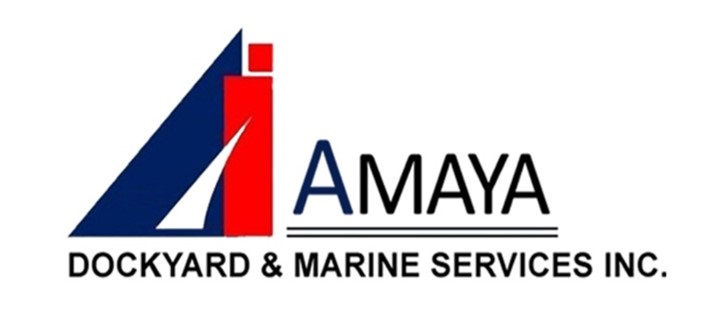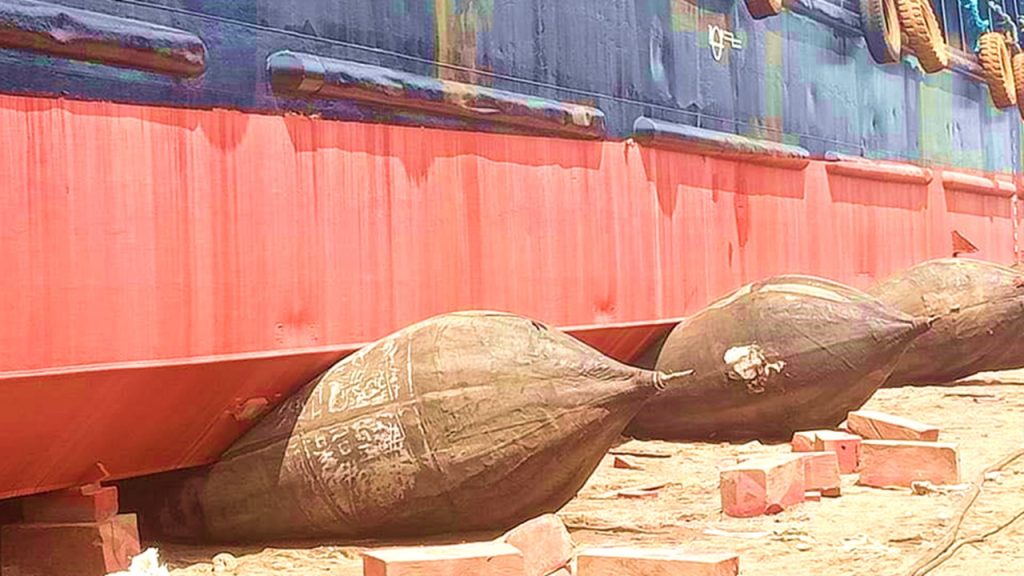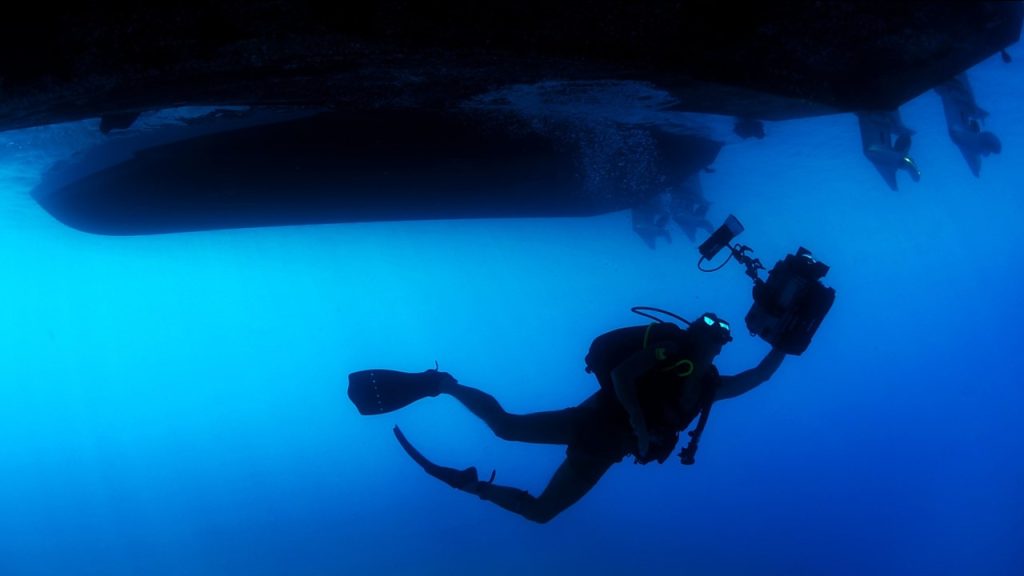Shipbreaking in the Philippines is the process of dismantling decommissioned vessels to recycle their materials, which is a crucial and intricate task that requires expertise and precision. For Filipino marine engineers, this practice presents both an opportunity to contribute to sustainable development and a unique challenge. With a rich maritime heritage and a vast coastline dotted with shipyards, the Philippines has emerged as a leading destination for shipbreaking. In this article, we will delve into the world of shipbreaking techniques, offering valuable tips and insights specifically tailored to Filipino marine engineers seeking to excel in this demanding field.
Click here to view our shipbreaking capabilities in Tanza, Cavite, Philippines.
What is the Purpose of Shipbreaking in the Philippines?
The practice of shipbreaking in the Philippines, also known as ship demolition or ship scrapping, serves a crucial purpose in the maritime industry. While it may seem counterintuitive to dismantle boats that were once symbols of strength and endurance, there are several reasons why this process is necessary. First, older vessels often become structurally unsound over time due to the harsh conditions they endure at sea. Shipbreaking in the Philippines allows for the safe disposal and recycling of these obsolete vessels, ensuring that they do not pose any environmental or navigational hazards.
Moreover, shipbreaking in the Philippines provides an opportunity for economic growth and job creation in countries with shipbreaking facilities. Progressive cities like Cebu, Bataan, Olongapo, Subic Bay, Navotas, Cavite, and Manila have become popular destinations for breaking vessels due to their competitive labor costs and lack of stringent regulations. By providing employment opportunities to local communities, shipbreaking in the Philippines contributes to poverty reduction and supports sustainable development in these regions.
However, it’s important to note that despite its benefits, shipbreaking in the Philippines has faced criticism for its hazardous working conditions and environmental impact. The handling of toxic materials such as asbestos and heavy metals poses significant health risks to workers if proper safety measures are not implemented. Additionally, the improper disposal of waste can lead to pollution of surrounding water bodies and soil contamination.
While shipbreaking in the Philippines serves a vital purpose in disposing of outdated vessels and stimulating economic growth in certain regions, it also poses challenges that need to be addressed responsibly.
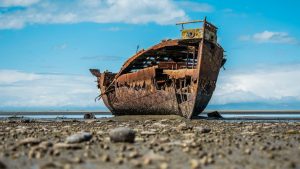
Importance of Shipbreaking for Filipino Marine Engineers
Shipbreaking in the Philippines, the process of dismantling old ships for recycling or disposal, is a crucial industry that holds immense importance for Filipino marine engineers. With the Philippines being one of the world’s leading shipbreaking countries, this practice directly contributes to the country’s economy and provides countless job opportunities for its skilled maritime workforce. Furthermore, shipbreaking allows these marine engineers to gain valuable hands-on experience in various aspects, such as structural engineering, safety protocols, environmental regulations, and project management.
Not only does shipbreaking in the Philippines provide economic benefits and practical experience for Filipino marine engineers, but it also plays a significant role in promoting sustainable practices within the maritime industry. Ship recycling reduces waste accumulation by repurposing materials from old vessels instead of manufacturing new ones from scratch. Moreover, through their involvement in shipbreaking operations, Filipino marine engineers can actively contribute towards ensuring safe and environmentally friendly procedures are followed throughout the dismantling process. This fosters a culture of sustainability within the industry while simultaneously enhancing their professional skills and expertise.
Shipbreaking holds immense importance for Filipino marine engineers as it provides them with extensive practical knowledge and contributes to both personal growth and national development. The opportunities offered by this industry enable them to thrive professionally while actively participating in promoting sustainable practices within an ever-evolving maritime landscape. By recognizing the significance of shipbreaking in their careers, Filipino marine engineers can shape a brighter future not only for themselves but also for their country’s economy and environment.
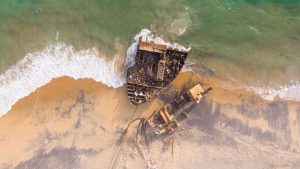
Overview of the Shipbreaking Industry in the Philippines
The shipbreaking industry in the Philippines has been thriving for decades, with the country often being referred to as one of the major players in this sector. The geographical location of the Philippines makes it an ideal hub for shipbreaking activities, as it is strategically positioned along major shipping routes. This allows vessels to access ports and facilities for dismantling and recycling easily.
One unique aspect of the shipbreaking industry in the Philippines is its focus on sustainable practices. Unlike some other countries where shipbreaking is often associated with environmental degradation and hazardous working conditions, many Philippine companies have adopted more eco-friendly methods. These include proper waste management and disposal procedures, safe handling of materials containing toxic substances such as asbestos, and ensuring worker safety through stringent regulations.
However, challenges still exist within this industry, particularly related to labor rights and occupational health hazards. There have been concerns raised regarding inadequate safety measures for workers involved in shipbreaking activities, leading to a higher risk of accidents and injuries. Additionally, there have been reports of child labor being used in certain cases.
Overall, while the shipbreaking industry in the Philippines presents economic opportunities and contributes to sustainability efforts through responsible practices, there is still a need for continuous improvement to ensure worker welfare and occupational safety are prioritized alongside business interests.
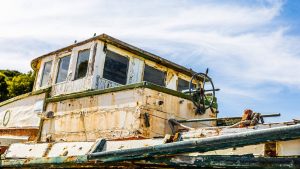
Safety Precautions: Safety Protocols During Shipbreaking in the Philippines
When it comes to shipbreaking in the Philippines, safety precautions should always be a top priority for all those involved in the process. The importance of following safety protocols cannot be emphasized enough. Shipbreaking is a highly dangerous and labor-intensive task that requires strict adherence to safety measures in order to prevent accidents and protect the lives of workers.
One key reason why safety precautions are crucial during shipbreaking in the Philippines is the presence of hazardous materials on board these vessels. Many vessels and boats contain substances such as asbestos, lead-based paint, and toxic chemicals, which can pose serious health risks if not handled properly. By following safety protocols, workers can minimize their exposure to these harmful elements and reduce the risk of long-term health complications.
Additionally, shipbreaking in the Philippines involves various cutting techniques and heavy machinery, which can easily lead to accidents if proper precautions are not taken. Falls from heights, burns from welding equipment, and injuries caused by flying debris are just a few examples of potential hazards that can occur during shipbreaking operations. By strictly adhering to safety measures like wearing personal protective equipment (PPE), using proper tools, and maintaining safe working practices, the chances of accidents can be significantly reduced.
Ensuring the implementation of proper safety precautions is paramount in the field of shipbreaking in the Philippines. From protecting workers’ health against hazardous materials to preventing accidents caused by risky techniques or equipment usage – following safety protocols is non-negotiable for all involved parties.
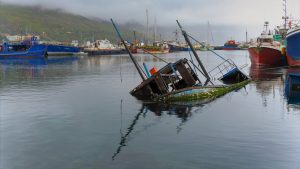
Cutting Techniques: Efficient Methods for Cutting and Dismantling Ships
One of the most efficient cutting techniques for shipbreaking in the Philippines is the use of a thermal lance, also known as a thermic lance or burning bar. This tool is especially useful for dismantling larger ships and cutting through thick steel plates. The thermal lance operates by burning oxygen and iron filings to create intense heat, which can reach temperatures up to 4,500 degrees Celsius. With its ability to quickly melt through metal, the thermal lance enables marine engineers to make precise cuts with minimal effort.
Another effective method for cutting and dismantling boats and vessels is the use of plasma-cutting technology. Plasma cutters are highly versatile tools that utilize a high-velocity jet of ionized gas directed at the metal surface, melting it away. Not only do plasma cutters provide excellent precision and speed, but they also allow engineers to achieve clean cuts on various materials such as steel, aluminum, and stainless steel. Additionally, these tools are relatively lightweight and portable, making them ideal for shipbreaking operations where flexibility is key.
In recent years, laser technology has also emerged as a viable option for ship dismantling practices. Laser cutting systems use powerful lasers that can generate high energy densities to vaporize or melt through metal surfaces rapidly. This method offers exceptional accuracy when creating precise cuts along closely defined lines without causing too much distortion in adjacent areas. Moreover, laser technology allows for automation in some cases using computer-controlled systems that can optimize efficiency during the process of shipbreaking in the Philippines.
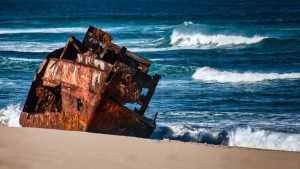
Equipment and Tools: Essential Equipment and Tools for Shipbreaking Operations
Essential equipment and tools are the backbone of any shipbreaking operation, ensuring efficiency, safety, and success. Filipino marine engineers must possess a wide range of specialized tools to dismantle and recycle decommissioned vessels effectively.
One of the key tools necessary for shipbreaking operations is the cutting torch. This powerful instrument is essential for slicing through thick steel plates and sections of the ship’s structure. Marine engineers rely on oxy-fuel or plasma torches to make precise cuts with minimal sparks and heat distortion.
In addition to cutting torches, hydraulic shears are a crucial tool that aids in efficiently separating different sections of the vessel. These heavy-duty industrial machines can slice through various materials such as metals, cables, and pipes. With their immense power and precision, hydraulic shears significantly reduce manual labor while boosting productivity during shipbreaking activities. By equipping themselves with these essential tools, Filipino marine engineers can tackle complex dismantling tasks head-on while promoting a safer working environment for all involved parties.
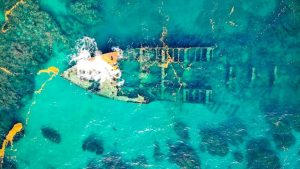
Waste Management: Disposal of Hazardous Materials During Shipbreaking in the Philippines
Proper waste disposal is a critical aspect of shipbreaking in the Philippines, especially when it comes to hazardous materials. With the large number of vessels being dismantled in shipyards across the world, the responsible management of these materials is essential to prevent environmental contamination and health risks for workers.
One important aspect of proper waste management during shipbreaking in the Philippines is the identification and segregation of hazardous materials. Marine engineers should be familiar with international regulations governing hazardous materials, such as the Basel Convention and International Maritime Organization’s guidelines. This knowledge allows them to identify materials like asbestos, PCBs, lead-based paint, and other toxic substances that need special handling and disposal procedures.
Furthermore, it is crucial to ensure that appropriate recycling or disposal methods are employed for each type of hazardous material encountered during shipbreaking. This includes collaborating with specialized waste management companies that have experience in handling such materials. Some hazardous wastes can be recycled or treated to eliminate their harmful properties before being reused or disposed of safely. By implementing these practices rigorously and adhering to all relevant regulations, marine engineers can contribute to a more sustainable approach towards shipbreaking in the Philippines while safeguarding both human health and the environment.
Proper waste management during shipbreaking in the Philippines involves identifying and segregating hazardous materials as well as employing suitable recycling or disposal methods for each material category encountered. The responsible handling of these substances ensures worker safety while preventing environmental pollution.

Environmental Impact: Minimizing Negative Effects During Shipbreaking in the Philippines
Shipbreaking in the Philippines, the process of dismantling old vessels to recycle or dispose of materials, can have a significant negative impact on the environment if not conducted responsibly. One way to minimize these effects is through the implementation of proper waste management and pollution control measures during the shipbreaking process. This includes implementing strict controls on the disposal of hazardous materials such as asbestos, lead-based paint, and oil residues. By carefully handling and disposing of these materials in accordance with international regulations, marine engineers can help prevent soil and water contamination.
Another aspect that Filipino marine engineers should consider to minimize environmental impact during shipbreaking in the Philippines is by promoting sustainable practices. This includes exploring alternative methods for dismantling boats that reduce pollution and promote resource conservation. For instance, using advanced technology such as plasma cutting instead of traditional torches can reduce air pollution by minimizing smoke emissions. Additionally, recycling materials from the ship can help conserve resources by reducing the need for new raw materials in various industries.
Minimizing negative effects on the environment during shipbreaking in the Philippines requires a combination of proper waste management practices and sustainable techniques. By prioritizing responsible handling and disposal of hazardous materials while also exploring innovative methods for dismantling ships, Filipino marine engineers can play a crucial role in protecting our planet’s fragile ecosystems. It is essential for all stakeholders involved in shipbreaking to work together towards creating a more environmentally conscious industry that prioritizes sustainability at its core.
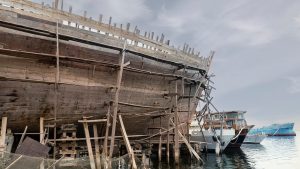
Impact on the Workers’ Safety During Shipbreaking in the Philippines
One of the most significant aspects to consider when it comes to shipbreaking techniques is the impact on workers’ safety. Shipbreaking in the Philippines can be an extremely dangerous task, with Pinoy workers facing risks such as accidents, injuries, and exposure to hazardous materials. It is important for Filipino marine engineers involved in shipbreaking to prioritize safety measures and ensure that proper protocols are in place to protect the well-being of their fellow workers.
Not only do inadequate safety precautions put workers at risk, but they can also have long-lasting consequences for their health and livelihoods. Accidents or injuries during shipbreaking not only lead to immediate physical harm but can also result in long-term disabilities that may affect these workers’ ability to earn a living. Therefore, investment in worker safety should be a top priority for any responsible marine engineer engaged in shipbreaking operations.
By implementing comprehensive safety training programs and adhering strictly to international standards for occupational health and safety, Filipino marine engineers can significantly reduce the risks associated with shipbreaking activities. Regular inspections of equipment and machinery should be conducted to identify potential hazards before they become serious threats. It is crucial not only for marine engineers themselves but also for companies overseeing shipbreaking operations, governments regulating them, and international organizations advocating safe practices work together diligently toward prioritizing worker safety at all stages of the process.
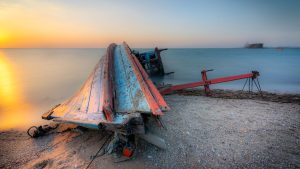
Regulations and Standards for Shipbreaking in the Philippines
Regulations and standards for shipbreaking in the Philippines have recently undergone significant changes, reflecting a growing concern for environmental sustainability and worker safety. The Philippine government has implemented stricter measures to ensure that shipbreaking activities comply with international standards. This includes the ratification of the Hong Kong International Convention for the Safe and Environmentally Sound Recycling of Ships in 2019, which sets out guidelines for the safe recycling of vessels.
Under these regulations, shipowners must obtain a Ship Recycling Plan (SRP) from an approved Ship Recycling Facility (SRF) before initiating any shipbreaking activities. These plans outline how ships will be dismantled, disposed of, or recycled in an environmentally friendly manner. Additionally, all workers involved in shipbreaking in the Philippines are required to undergo training on the proper handling of hazardous materials and receive appropriate protective gear. Such measures aim to not only protect human lives but also mitigate harm to ecosystems by minimizing air pollution, water contamination, and soil degradation from toxic substances found in old vessels.
Overall, these enhanced regulations demonstrate a commitment by the Philippine government to promote sustainable shipbreaking practices that prioritize both worker safety and environmental conservation. As Filipino marine engineers familiarize themselves with these new standards and adopt innovative techniques for dismantling ships safely and responsibly, they contribute significantly towards reducing maritime pollution while ensuring their own well-being during shipbreaking operations.
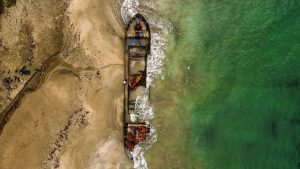
Tips for Filipino Marine Engineers in Shipbreaking
When it comes to shipbreaking in the Philippines, Pinoy marine engineers play a crucial role in ensuring both efficiency and safety. Here are some helpful tips for Filipino marine engineers working in shipbreaking to enhance their skills and expertise. First, always prioritize safety above all else. Shipbreaking can be a hazardous job, so it is essential to adhere strictly to safety protocols, wear the necessary protective gear, and stay up-to-date with the latest safety guidelines.
Second, develop a comprehensive understanding of different ship types and structures. Each vessel presents its own unique challenges during the dismantling process, so having a thorough knowledge of various ship designs will enable you to devise appropriate strategies for efficient and safe dismantling.
Lastly, continually improve your technical skills by staying updated with industry trends and developments. Attend workshops or training programs that focus on new techniques or technologies in shipbreaking in the Philippines. Expanding your technical knowledge will not only make you more valuable as an engineer but also enable you to contribute ideas for more sustainable and environmentally friendly practices in shipbreaking operations.
By following these tips, Filipino marine engineers can excel in the challenging field of shipbreaking in Cavite, Cebu, Manila, Subic Bay, Navotas, Batangas, and Bataan while upholding high standards of safety, efficiency, and environmental sustainability.
Are You Looking for a Shipbreaking Company in the Philippines?
If you are in search of a reliable and professional shipbreaking company in the Philippines, look no further than Amaya Dockyard & Marine Services Inc. (ADMSI). With years of expertise in the industry, ADMSI is known for providing quality and cost-effective shipbreaking solutions.
- Email us: info@amayadockyard.com
- Call our 24-hour hotline: +63 917 633 0479
- Viber: +63 917 633 0479
- WhatsApp: +63 917 633 0479
- Facebook Messenger: Click here
- Click here to inquire
What sets ADMSI apart from its competitors is its commitment to adhering to environmentally-friendly practices during the shipbreaking process. They prioritize proper waste management, recycling materials, and ensuring minimal impact on the environment. This not only helps to preserve marine ecosystems but also aligns with international standards and regulations.
Furthermore, ADMSI boasts a highly skilled team of marine engineers who specialize in shipbreaking techniques. These professionals undergo rigorous training programs to ensure that they are equipped with the latest knowledge and expertise required for safe dismantling and disposal processes. By choosing ADMSI, you can have peace of mind knowing that your vessel will be handled efficiently and responsibly.
If you are looking for a shipbreaking company in the Philippines that offers top-quality services while prioritizing environmental sustainability, Amaya Dockyard & Marine Services Inc. should be your go-to choice. With their expertise in shipbreaking techniques and dedication to preserving the environment, they provide a reliable solution for all your dismantling needs.
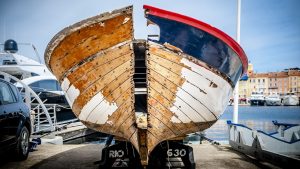
The Importance of Responsible Shipbreaking in the Philippines
Responsible shipbreaking in the Philippines practices are of utmost importance in ensuring the safety and well-being of both the environment and the workers involved in this complex process. Shipbreaking refers to the dismantling of old ships, which can be a dangerous task due to the presence of hazardous materials such as asbestos, heavy metals, and toxic chemicals. By employing responsible shipbreaking techniques, Filipino marine engineers can minimize the negative impact on the environment and protect themselves from potential health hazards.
One aspect of responsible shipbreaking practices is proper waste management. Vessel structures often contain substances that need careful handling and disposal, such as fuel oil, lubricants, batteries, and electronic equipment. Failure to handle these materials appropriately can lead to environmental contamination through soil or water pollution. By implementing effective waste management strategies that comply with local regulations and international standards, marine engineers can ensure that harmful elements are disposed of safely.
Another crucial aspect is worker safety protocols during ship-breaking operations. The nature of vessel dismantling work poses numerous risks to workers’ health and safety if precautions are not taken into account. Implementing strict safety guidelines such as providing adequate personal protective equipment (PPE), conducting regular training sessions on safe working procedures, and ensuring proper emergency response plans are essential for safeguarding workers’ well-being throughout the whole process.
Responsible shipbreaking practices play a vital role in protecting both environmental sustainability and workers’ safety concerns.
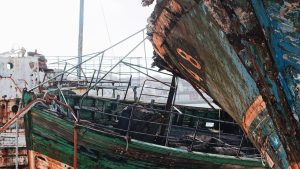
Take Away: Shipbreaking in the Philippines for Marine Engineers
In conclusion, Filipino marine engineers play a vital role in shipbreaking techniques, ensuring the safe and efficient dismantling of ships. By combining their technical expertise with proper planning and adherence to international standards, they can contribute to a sustainable shipbreaking industry in the country.
One important tip for Filipino marine engineers is to stay updated with the latest practices and technologies in shipbreaking in the Philippines. Continuous learning and professional development are crucial in mastering the various techniques involved in dismantling boats and vessels safely and efficiently. This can be achieved through attending workshops, conferences, and online courses that provide valuable insights into best practices from around the world.
Additionally, it is essential for Filipino marine engineers to prioritize environmental sustainability throughout the shipbreaking process. Implementing eco-friendly practices such as proper waste management, minimizing air pollution, and ensuring worker safety are key factors in creating a more responsible shipbreaking industry.
By incorporating these tips into their work, Filipino marine engineers can contribute to making shipbreaking operations safer, more efficient, and environmentally sustainable. Ultimately, their expertise will help shape the future of this industry in the Philippines while also safeguarding our environment for generations to come.
